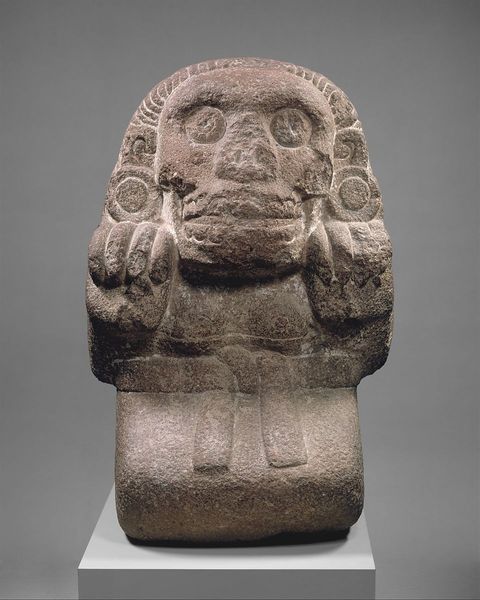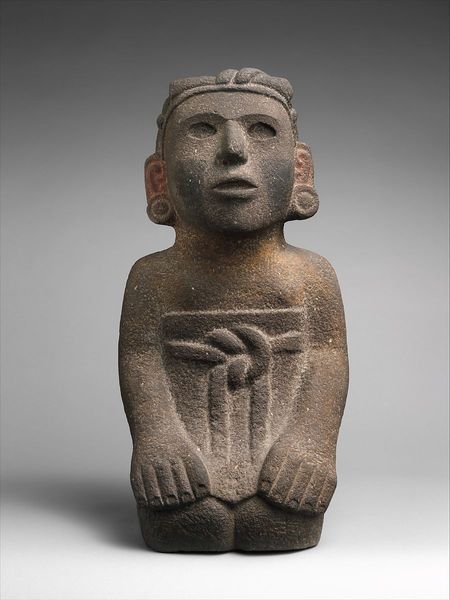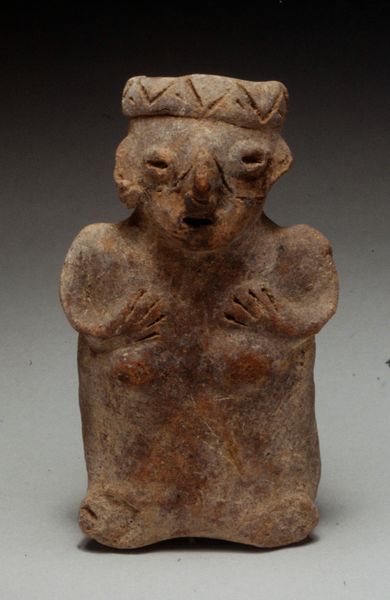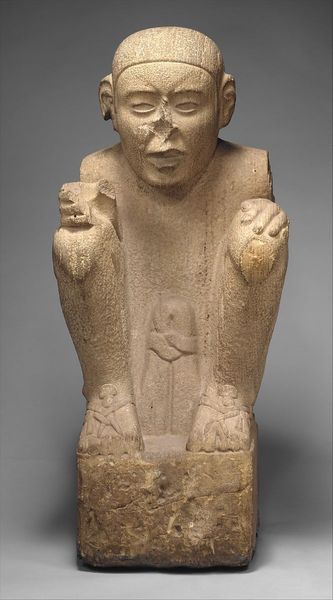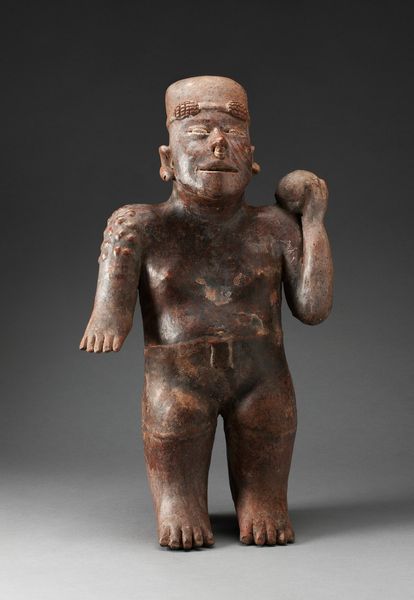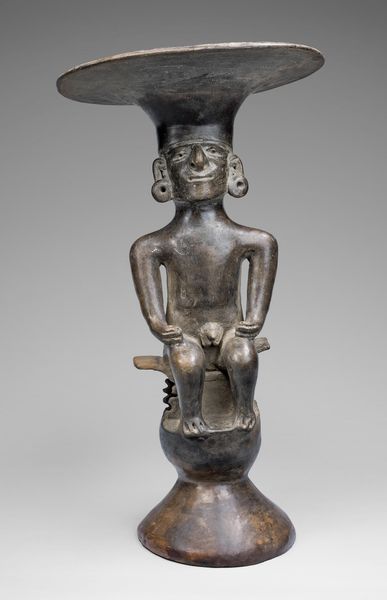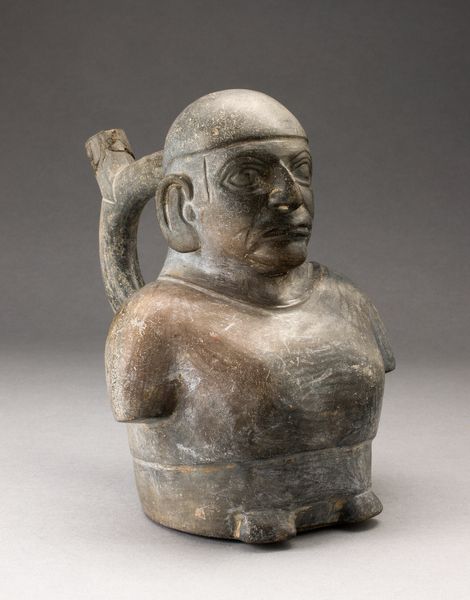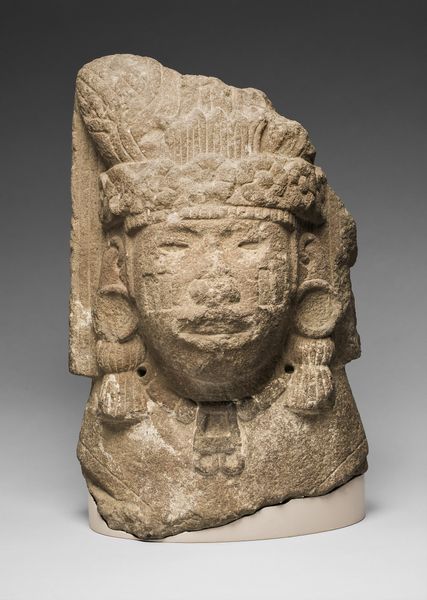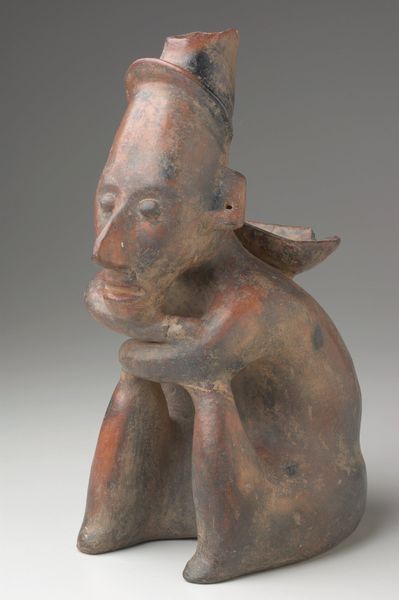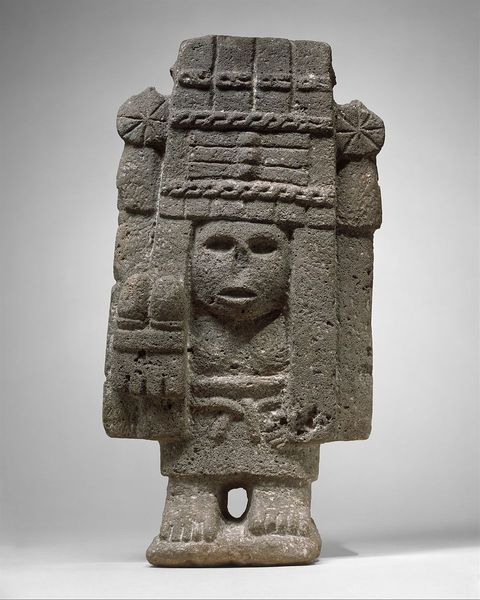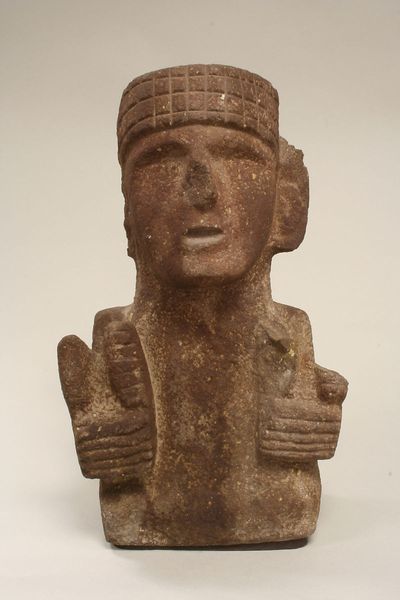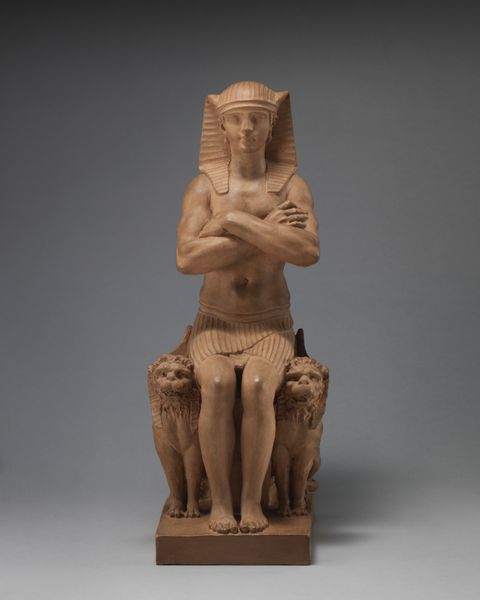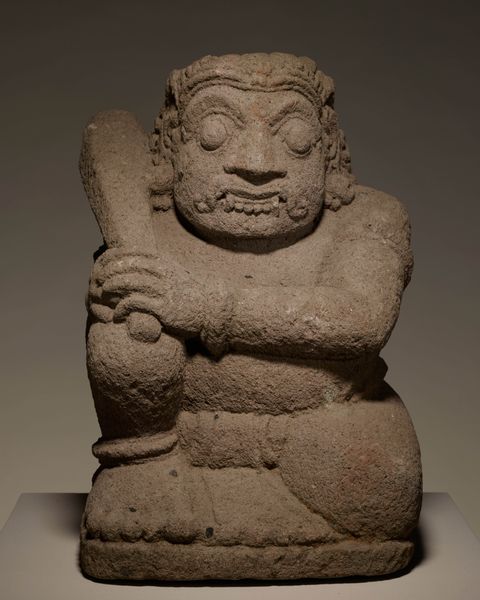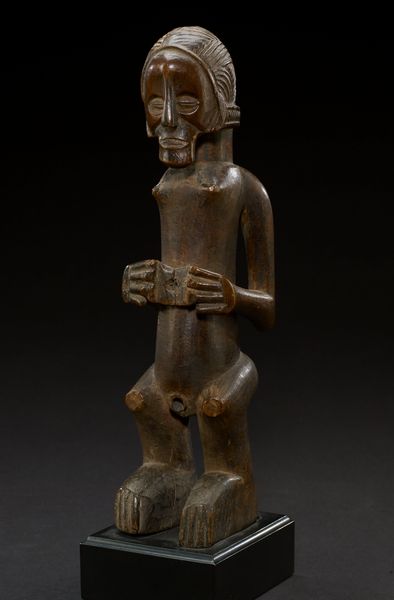
carving, sculpture
#
portrait
#
carving
#
stone
#
sculpture
#
figuration
#
sculpture
#
indigenous-americas
Copyright: Public domain
This sculpture of the Seated Deity, Macuilcoatl, was carved by Aztec artists sometime between 1300 and 1521, likely using tools made of stone, wood, and perhaps copper. The artist chose a relatively soft volcanic stone, allowing for detailed carving of the figure’s features. The smooth texture of the stone gives the sculpture a tactile presence, inviting touch even though we can’t. Carving stone is a labor-intensive process, demanding patience and skill. The creation of this sculpture involved a significant investment of time, reflecting the value placed on the deity represented. Consider that the resources required to create the sculpture would have been extracted and transported by laborers. In the Aztec world, this act of creation would have involved an entire community, thus imbuing the statue with social and cultural meaning. Ultimately, the sculpture reminds us of the important relationship between material, process, and cultural significance in the creation and understanding of art.
Comments
No comments
Be the first to comment and join the conversation on the ultimate creative platform.
